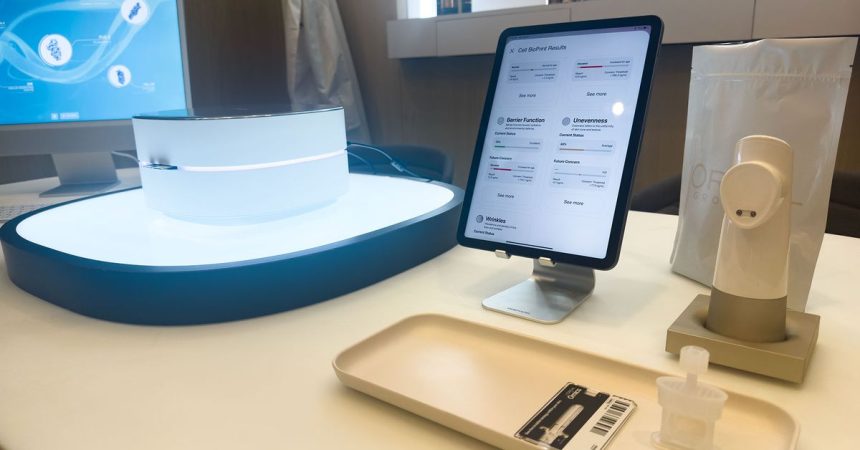The arid climate of Las Vegas served as a harsh reminder of the importance of skincare, prompting a personal exploration into the effectiveness of various products. This led to an encounter with L’Oréal’s Cell BioPrint, a groundbreaking device poised to revolutionize skincare through personalized analysis. The Cell BioPrint analyzes a skin sample to generate a comprehensive report on its current condition, grading factors like oiliness, wrinkles, and pore size. It also assesses the skin’s biological age and predicts future susceptibilities based on protein expression. Crucially, the device determines an individual’s responsiveness to retinol, a potent ingredient often shrouded in confusion.
The demo experience with the Cell BioPrint was remarkably straightforward. A trained professional collected skin samples, which were then processed through a specialized machine. Accompanying this, a scan of the cheeks and forehead, along with basic demographic information, provided a complete picture of skin health. The resulting report revealed a surprising alignment between chronological and biological skin age, indicating effective current skincare practices. However, it also highlighted a predisposition to future skin barrier issues, emphasizing the need for preventative measures. The report provided tailored recommendations, advising continued use of ceramide-rich moisturizers, enhanced sun protection, and the incorporation of vitamin C and retinol into the routine. Conversely, it also indicated areas where investment in specific products, such as pore-minimizing treatments, would be unnecessary.
The results resonated deeply, aligning with existing skincare concerns and habits. This affirmed the accuracy of the Cell BioPrint’s assessment and instilled confidence in its recommendations. However, recognizing the prevalence of unsubstantiated claims in the beauty tech industry, it was crucial to understand the scientific foundations of the Cell BioPrint. To this end, L’Oréal’s global vice president of Technology Incubator, Guive Balooch, provided a detailed explanation.
Balooch explained that the Cell BioPrint’s technology is rooted in proteomics, the study of protein expression in the body. L’Oréal’s team of 800 biologists conducted extensive research, including clinical studies, to identify specific proteins expressed in skin cells that could predict the risk of developing certain skin conditions. This involved sequencing thousands of proteins to pinpoint the relevant biomarkers. Over a decade-long study involving 4,000 participants across diverse geographical locations, L’Oréal identified five key proteins related to skin health, including two specifically linked to retinol responsiveness. While the current iteration focuses on retinol, research is ongoing to expand the analysis to include other ingredients like niacinamide and hyaluronic acid.
The potential for the Cell BioPrint to become a mere tool for upselling products was a valid concern. However, Balooch emphasized that the device’s purpose is to guide consumers toward effective choices, potentially even discouraging unnecessary purchases. He argued that the goal is to empower individuals to make informed decisions based on scientific evidence, rather than contributing to overconsumption.
This philosophy contrasts sharply with the current skincare market, which is often saturated with misinformation and influencer-driven trends promoting complex, and sometimes detrimental, routines. The Cell BioPrint offers a refreshing alternative, providing personalized recommendations grounded in scientific research. This empowers individuals to make targeted choices, focusing on ingredients and products that genuinely address their specific needs, rather than succumbing to marketing hype. The experience with the Cell BioPrint highlighted the potential of personalized skincare and the value of a science-backed approach. It provides a framework for navigating the overwhelming world of skincare, offering a path towards effective and informed decisions. This promises not only better skin health but also a more conscious and less wasteful approach to skincare consumption.



